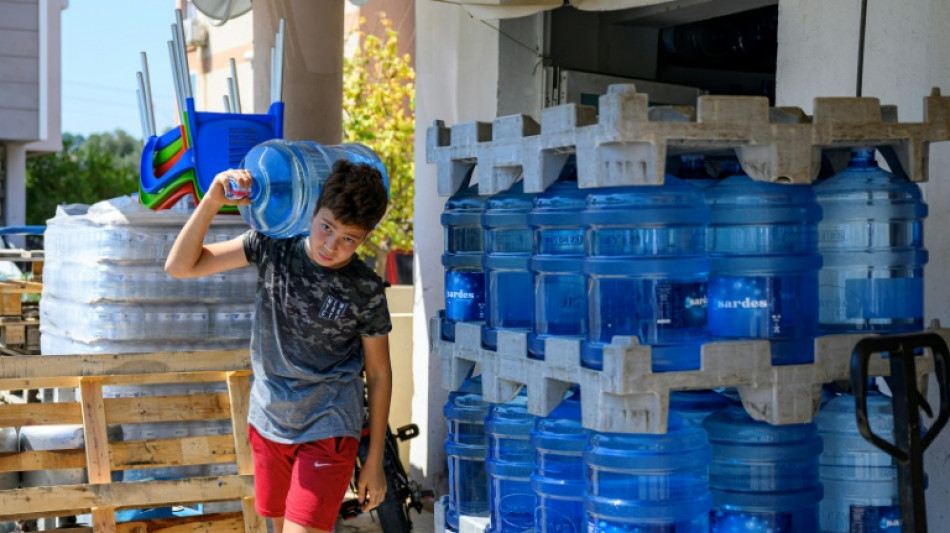
-
 Veteran Monfils exits to standing ovation on Australian Open farewell
Veteran Monfils exits to standing ovation on Australian Open farewell
-
Precision-serving former finalist Rybakina powers on in Melbourne

-
 South Korea's women footballers threaten boycott over conditions
South Korea's women footballers threaten boycott over conditions
-
Equities sink, gold and silver hit records as Greenland fears mount

-
 Australian lawmakers back stricter gun, hate crime laws
Australian lawmakers back stricter gun, hate crime laws
-
EU wants to keep Chinese suppliers out of critical infrastructure

-
 AI reshaping the battle over the narrative of Maduro's US capture
AI reshaping the battle over the narrative of Maduro's US capture
-
Penguins bring forward breeding season as Antarctica warms: study

-
 Vietnam leader pledges graft fight as he eyes China-style powers
Vietnam leader pledges graft fight as he eyes China-style powers
-
Ukrainian makes soldier dad's 'dream come true' at Australian Open

-
 'Timid' Keys makes shaky start to Australian Open title defence
'Timid' Keys makes shaky start to Australian Open title defence
-
Indiana crowned college champions to complete fairytale season

-
 South Koreans go cuckoo for 'Dubai-style' cookies
South Koreans go cuckoo for 'Dubai-style' cookies
-
Harris leads Pistons past Celtics in thriller; Thunder bounce back

-
 Tjen first Indonesian to win at Australian Open in 28 years
Tjen first Indonesian to win at Australian Open in 28 years
-
Long-delayed decision due on Chinese mega-embassy in London

-
 Djokovic jokes that he wants slice of Alcaraz's winnings
Djokovic jokes that he wants slice of Alcaraz's winnings
-
Trump tariff threat 'poison' for Germany's fragile recovery
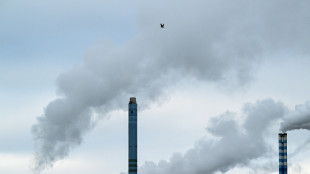
-
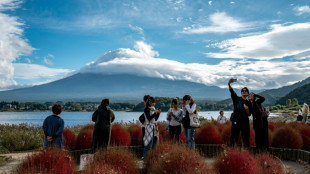 Tourists hit record in Japan, despite plunge from China
Tourists hit record in Japan, despite plunge from China
-
Jittery Keys opens Melbourne defence as Sinner begins hat-trick quest

-
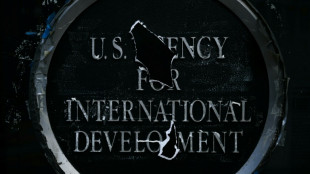 The impact of Trump's foreign aid cuts, one year on
The impact of Trump's foreign aid cuts, one year on
-
Belgian court weighs trial for ex-diplomat over Lumumba killing

-
 Inside China's buzzing AI scene year after DeepSeek shock
Inside China's buzzing AI scene year after DeepSeek shock
-
Asian markets sink, silver hits record as Greenland fears mount

-
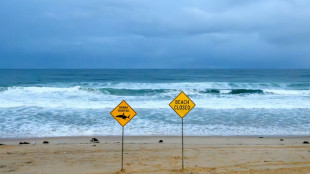 Shark bites surfer in Australian state's fourth attack in 48 hours
Shark bites surfer in Australian state's fourth attack in 48 hours
-
North Korea's Kim sacks vice premier, rails against 'incompetence'

-
 Spain mourns as train crash toll rises to 40
Spain mourns as train crash toll rises to 40
-
'Very nervous' Keys makes shaky start to Australian Open title defence

-
 Vietnam leader promises graft fight as he eyes China-style powers
Vietnam leader promises graft fight as he eyes China-style powers
-
Dad-to-be Ruud ready to walk away from Australian Open

-
 North Korea's Kim sacks senior official, slams 'incompetence'
North Korea's Kim sacks senior official, slams 'incompetence'
-
Farewells, fresh faces at Men's Fashion Week in Paris

-
 'I do not want to reconcile with my family' says Brooklyn Peltz Beckham
'I do not want to reconcile with my family' says Brooklyn Peltz Beckham
-
EU leaders take stage in Davos as Trump rocks global order

-
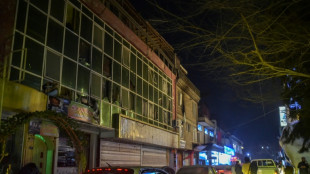 Blast at Chinese restaurant in Kabul kills 7
Blast at Chinese restaurant in Kabul kills 7
-
Warner hits 'Sinners' and 'One Battle' tipped for Oscar nominations

-
 Colombian paramilitary-turned-peace-envoy sentenced over atrocities
Colombian paramilitary-turned-peace-envoy sentenced over atrocities
-
Gilgeous-Alexander leads Thunder in rout of Cavaliers

-
 Seahawks blow as Charbonnet ruled out for rest of season
Seahawks blow as Charbonnet ruled out for rest of season
-
Kostoulas stunner rescues Brighton draw after penalty row

-
 Man Utd greats tell Martinez to 'grow up' as feud rumbles on
Man Utd greats tell Martinez to 'grow up' as feud rumbles on
-
LeBron James' All-Star streak over as starters named

-
 Allies tepid on Trump 'peace board' with $1bn permanent member fee
Allies tepid on Trump 'peace board' with $1bn permanent member fee
-
Ninth policeman dies in Guatemala gang riots, attacks

-
 Man City's Foden to play through pain of broken hand
Man City's Foden to play through pain of broken hand
-
Milan Fashion Week showcases precision in uncertain times

-
 Public media in Europe under unprecedented strain
Public media in Europe under unprecedented strain
-
Africa Cup of Nations refereeing gets a red card

-
 Tributes pour in after death of Italian designer Valentino
Tributes pour in after death of Italian designer Valentino
-
Bills fire coach McDermott after playoff exit: team


Turkey facing worst drought in over 50 years
Turkey is experiencing its worst drought in over half a century, with rainfall dropping by 27 percent compared to the last three decades and even more in some regions, according to data published this week.
Between October 1, 2024 and August 31 this year, precipitation in Turkey averaged at 401.1 millimetres (15.8 inches) compared to 548.5 mm between 1991 and 2020, the Turkish State Meteorological Service (MGM) said in its monthly report.
"Over 11 months, rainfall in Turkey has dropped to its lowest level in the past 52 years," the MGM said, noting a reduction of more than 60 percent in southeastern Anatolia, a typically arid region that borders Syria.
Less than 250 mm fell over 11 months, compared to average rainfall of over 1,000 mm over the past 30 years.
Turkey's Mediterranean regions have not been spared, with Marmara and the coast along the Aegean Sea recording the lowest precipitation in 18 years.
Water shortages paired with abnormally high temperatures made for a hellish summer in Turkey.
The month of July was the hottest in 55 years: average temperatures exceeded those between 1991-2020 by 1.9C, and even broke records with 50.5C in Silopi in the southeast at the end of the month.
Adana, the southern region known for its citrus fruit production, also saw its hottest day in 95 years when it hit 47.5C in early August.
In the west, Cesme's reservoir lake dropped to three percent of its usual water levels -- so much so that an old road, normally submerged, reappeared and made it to Turkish TV screens.
The situation triggered multiple forest fires in the west and around Hatay in the south, prompting mosques across the country to pray for rain at the beginning of August.
An NGO study published in early July estimated that 88 percent of Turkey risks desertification.
Rainfall is set to decrease by a third between now and the end of the century, while temperatures could rise by 5 to 6C compared to averages recorded between 1961-1990, experts predict.
Atypical weather has affected Turkey's most important exports such as apricots, apples, figs and hazelnuts, which make up 70 percent of global production.
In late August, President Recep Tayyip Erdogan estimated agricultural losses of 23 billion Turkish lira ($557 million) for the country's 50,000 insured farmers and promised state aid for the 420,000 without any cover, whose incomes have collapsed.
D.Schlegel--VB
